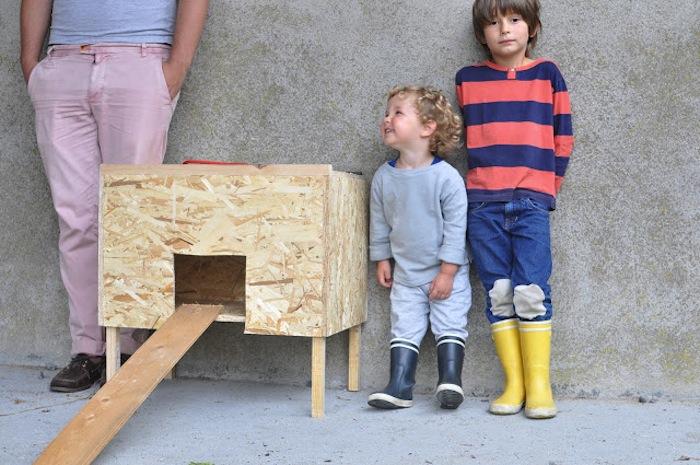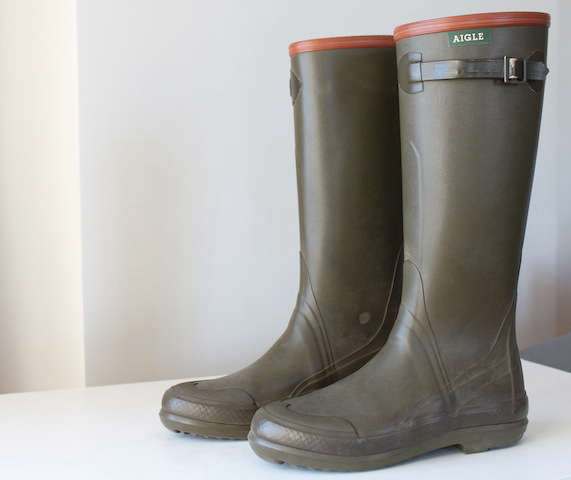It's a far cry from London's Jermyn Street, which once supplied clothes and boots to hunting folk when they came down from the Shires. Horace Batten has been making boots for cavalry and huntsmen since 1804 and the family business is based in the garden of the Batten home, 100 miles from London.
A different language is spoken here in deepest Northamptonshire: "Shire packs," "hunt servants" and "whippers-in"… we nod attentively before appreciating the boots. (N.B.: Knowledge of hunting is not a requirement for this.)
Photographs by Kendra Wilson for Gardenista.

Above: The Horace Batten Strap Jodhpur. All boots are made to measure; a fitting takes place from six to eight weeks after the measurements are given. The strap jodhpur boot costs about £350 and a wooden shoe last is available to buy if required.

Above: One end of the shop, in a Grade II listed building. Horace Patten gives a different kind of lifestyle experience from that promised by the boot makers of Piccadilly.

Above: Myriad boots including the laced Field Boot, "particularly useful for riding school instructors, cavalry officers and show officials."

Above: The Newmarket Boot, a new design, and awaiting a fitting before the leather strap is attached down the spine. Suitable for riding or "walking down the King's Road" in London's Chelsea, it is made with water-resistant canvas. If intended for riding, as above, leather patches are fitted inside to help prevent wear. As they are not predominantly leather the price is at the lower end of the long boot spectrum at about £650.

Above: The buckle strap on Horace Patten boots is mainly decorative since the boots are made to measure. Had they been bought off the shelf, straps would be used to adjust the tightness of the instep.

Above: Made with near-identical pieces of cow hide for each leg, the newly christened Prairie Boot. The imaginary customer for these, says Tim Batten, is an owner or trainer who is leading their winning horse out of the ring having just won the Gold Cup at the Cheltenham National Hunt Festival.

Above: Iconic shape and colors of the Wax Calf Riding Boot. Always black, the top is usually tan or mahogany, as shown here. Wooden boot trees are made to the exact measurements of the client's foot. They are an optional part of the service but come very strongly recommended to "maintain the Horace Batten shape." Made of solid beech, with monogrammed brass tops if required, the boot trees are steamed and kiln-dried.

Above: The wax calf riding boot with a perfect shine. This is how it is achieved: "highest quality black wax polish is liberally applied to the boots with a cloth and then brought to a high gloss finish by vigorous rubbing with a deer bone." Deer bones available on request.

Above: A scenic corner of the shop. There is in fact a fox hunting ban in place in the UK.

Above: Old samples from Horace Batten's considerable archive.



Have a Question or Comment About This Post?
Join the conversation (0)